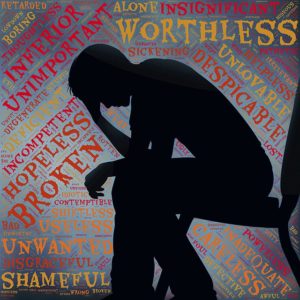WAYS OF COPING WITH TEACHERS DEPRESSION AND FATIGUE
 The first step in effectively overcoming and coping with teacher’s depression and fatigue is to understand it. What is the definition, how does it affect you, what is its main causes?
The first step in effectively overcoming and coping with teacher’s depression and fatigue is to understand it. What is the definition, how does it affect you, what is its main causes?
Depression is an illness! It is the most common of all mental health problems, while Fatigue is a feeling of tiredness, exhaustion, or lack of energy. You may feel mildly fatigued because of overwork in school, poor sleep, financial worry, boredom, or lack of exercise. Researchers estimate that 17 million teachers, or even much more, suffer from depression at some point in their lives.
You are not alone!
It is not just a passing blue mood or the usual pain and sadness that follows the loss of a loved one, or the “downside” in life’s ordinary ups and downs. The feelings of emptiness, helplessness, worthlessness, hopelessness and despair are intense, unrelenting and pervasive to such an extent that these affect your school activities, affecting your ability to be active in class, study your lesson note, eat, and sleep.
Symptoms of Depression
Common signs of depression include:
- Changes in sleeping patterns, sleeping longer than average, Insomnia, or waking up earlier than usual
- Losing interest and attention in activities you used to find fun and enjoyable
- Changes in appetite, reduced appetite or overeating
- Loss of concentration, difficulty remembering things
- Feeling helpless, worthless, guilt-ridden, sad, anxious, empty or pessimistic
- Physical pain, cramps a headache or stomach issues that don’t seem to go away
- A general decrease in energy level, feeling tired or worn out all the time
- Crying spells for no apparent reason
Causes of teachers Depression and Risk Factors
Why are you feeling depressed? What causes your depression?
Depression is common in families – which means it can be hereditary. Some teachers may inherit genes that make them susceptible to or subjected to depression. The genes do not cause depression but increase the risk when certain psychological and social factors come into play at the same time.
Research suggests that a chemical imbalance may instigate depression in the brain. The human brain functions on fluids known as neurotransmitters; some controlling body movements while some give energy (adrenalin). The neurotransmitter related to depression is called Serotonin which controls mood, sleep, appetite, alertness amongst others. When a teacher is overly stressed for sometime in school, the brain uses Serotonin faster than it can create and when the level of Serotonin drops, he/she become depressed.
These genetic and biological causes do play specific roles in depression, but social and psychological factors have an enormous impact on teachers depression. The sources and risk factors for depression may align with:
- Stressful life experiences like a sudden severe loss (of a loved one, job, friendship).
- Loneliness in school
- Financial problems encounter by inadequate salary structure
- Health problems or chronic pain developing to fatigue
- Intense physical or mental trauma
- Failing at some vital task in classroom management and other school curricular activities
Pinpointing and understanding the underlying source (or causes) of your depression can help in overcoming the disorder. As a teacher, if your depression is caused by loneliness, you can socialise more with your closest staffs – go out with friends. If it is your school job that is depressing you, change to a more satisfying career. Changing your environment can remedy your depression!
Ways of Coping with Teachers Depression and Fatigue
There are many treatments for depression, including therapy, medication and other alternative therapies.
- First and foremost is to recognize, acknowledge and accept your depressive disorder and deal with it squarely! Don’t try to eliminate your depression by turning to alcohol or drugs. Your depression will come to the extreme and you may find yourself six feet under the ground! Depression can be healed naturally and safely!
- The preferable way to take in effectively treating and overcoming your depression is the one that talks about the underlying psychological and environmental factors that cause you to be depressed. Your whole person must be treated and healed! These can include:
- Develop a support system. Ask for help from your family, school administrators and colleagues. Let the school know your problem and how they can assist you.
- Go out and enjoy yourself. Converse with positive and cheerful colleagues who make you laugh (avoid negative people). Visit old friends and recall happier times.
- Eat a well-balanced diet and take vitamins regularly.
- Learn relaxation and meditation techniques. Take a break from your some of your unnecessary school daily routine which could be monotonous and depressing.
- Endeavor to take a refreshing morning shower after bed.
